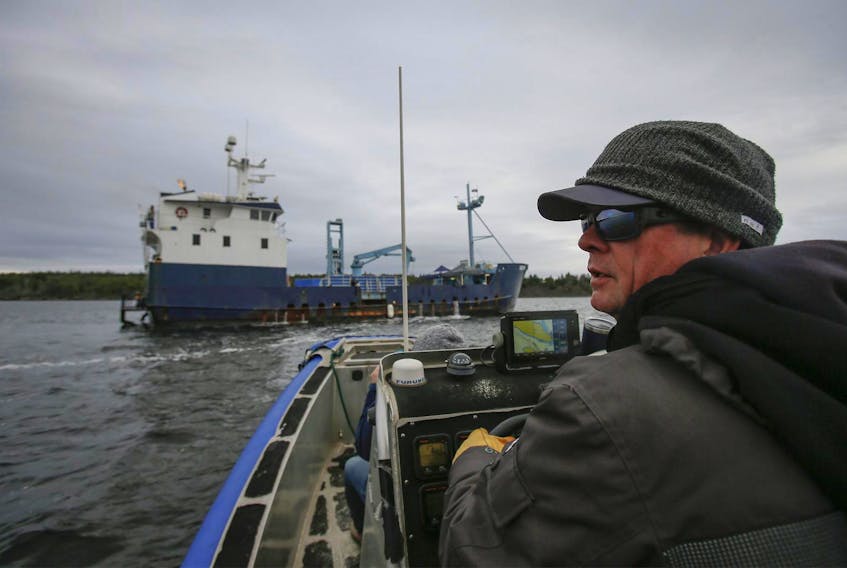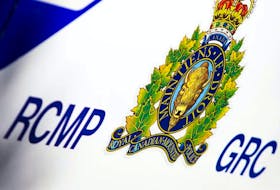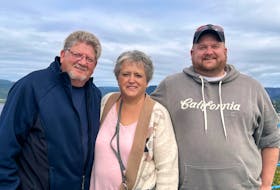The organization that tagged six great white sharks last fall in Nova Scotia waters is looking to come back for more in September.
Chris Fischer, Ocearch founder and expedition leader, is meeting Fisheries and Oceans Canada representatives this week as well as stakeholders in the Lunenberg area and Halifax on Tuesday and Wednesday.
Chief scientist Bob Hueter and lead veterinarian Harley Newton will also be along. The team is also going to hold an information session for the public on Wednesday evening at the Museum of Natural History in Halifax.
Meet @ChrisOCEARCH in Halifax. He’s hosting a public meeting Wednesday at the Natural History Museum to discuss our mission and the expedition we are planning to Nova Scotia this Fall. Register for free https://t.co/iJS04R8wAf pic.twitter.com/6XSreo2jPb
— OCEARCH (@OCEARCH) April 21, 2019
“It’s our hope to be back this fall,” Fischer said in a telephone interview on Monday before he boarded a flight to Halifax. “So we’re going to meet with the DFO people, we’re going to go through several questions they have about different learnings and different pieces of the science and then we are going to give them our hopeful schedule for the fall in person.”
Ocearch has already started the process of obtaining permits for a new expedition.
Fischer said they are looking at waters off Cape Breton — where the white shark they dubbed Hilton spent a lot of time last year — and West Ironbound Island off Lunenburg where they caught the sharks in the fall.
It was Hilton that brought them to Nova Scotia in the first place. First tagged off Hilton Head, S.C., in the spring of 2017 with a satellite tracking-enabled device, the male white shark spent a lot of time off Lunenburg and Mahone Bay that fall. Since that time of year is mating season, the researchers suspected a previously unknown breeding ground could be located in the area.
The 2018 expedition off Lunenburg in late September and early October led to successful tagging of six white sharks: Luna, Jane, Cabot, Hal, Jefferson and Nova, and the catching of a seventh that was too small to tag. The tags on the dorsal fins link up with a satellite tracking network when they break the surface of the ocean.
“The six sharks that we tagged in Nova Scotia last fall are all doing well and pinging nicely,” Fischer said. “Very interesting to see what they’re doing. But as they begin to make their move northbound, which should start to unfold in the coming months, it’s going to be very interesting to see if those white sharks happen to go by Massachusetts or do they go by Massachusetts and go straight to Canada, will they show us areas of Nova Scotia we didn’t know to look previously?”
The carnivores could show up as early as July, he said, as the waters off the southern U.S. become uncomfortably warm for them and they look for prey such as seals.
They’re particularly interested in the track Luna might follow. The 4.6-metre, 960-kilogram mature female could be pregnant after her adventures off Nova Scotia in the fall, in which case she will not come to the same waters this year.
“And then she could potentially show us where the Canadian white shark gives birth next May-June, which would be an enormous breakthrough,” Fischer said.
He said scientists are just scratching the surface of what can be learned in the northwest Atlantic.
“One of the biggest things that people, I think, don’t understand about Ocearch is that Ocearch is not a great white shark program, Ocearch is an abundance program. It’s a fish sandwich program. We’re trying to make sure that all of our great-grandkids can eat fish sandwiches. It’s just a path to abundance that goes through the white sharks and if the white sharks are up there thriving, your commercial lobster fishery’s going to thrive, it’s going to help the cod continue to slowly rebuild, and they’re going to keep your seals from kind of running wild on your resource there.”
The museum presentation starts at 7 p.m. and is free to attend. Interested people can register for the event online.
You can see the Ocearch shark tracker here.
RELATED:









